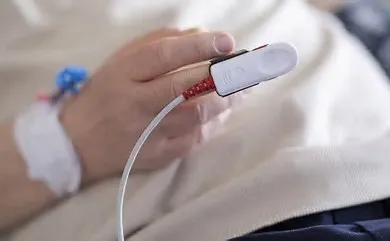While menopause is a natural part of aging, women often choose to ignore its symptoms. Women should be sure to see their doctor for routine checkups and treatment as early as possible. Menopause is a sign of potential health risks, and doctors will advise you to take preventive measures to protect your heart. As a result, certain cancers and heart conditions become greater risks for women as they age.
Symptoms of Menopause
The end of a woman’s childbearing years is marked by menopause. While menopause is a natural process, many women experience uncomfortable symptoms during this time. Menopause specialists are trained to help women deal with these changes. Women may experience hot flashes, which cause intense heat to be felt in the face and upper body. This can happen only once or twice per month and last a few minutes. Some women even experience night sweats.
Other common symptoms include mood changes, difficulty sleeping, and decreased libido. These changes may not be associated with decreasing hormone levels. Mood changes are a common side effect of menopause, but these changes are not always the cause of depression. Some people suffer from a variety of mood disorders during the transition period, such as insomnia and depression. For those experiencing these side effects, there are several menopause medications that are safe and effective. If you feel any of the symptoms from experts you can seek help for menopause. Thankfully, symptoms like these are treatable.
Although the menopause process is normal and natural, some women experience early or premature menopause. Premature menopause can result from surgery or damage to the ovaries. In addition, women who have undergone radiation therapy or chemotherapy are more likely to have early symptoms. The menopause period is also called postmenopause and typically lasts between two to seven years after the last menstrual cycle. Sometimes, these symptoms can persist for much longer.
Signs and Symptoms of Perimenopause
If you’ve ever experienced symptoms of perimenopause, you know that they can be debilitating. Whether you’ve been bleeding for seven days or have gone over 21 days without a menstrual period, it’s vital to attend a menopause specialist for a proper diagnosis. Thankfully, there are many options available to manage your symptoms, including taking low-dose birth control pills, using vaginal rings, and cutting alcohol consumption. If you’ve already been experiencing perimenopause symptoms, a menopause specialist may recommend other options, including hormone therapy or a vaginal estrogen to prevent bone loss. Low-dose antidepressants may also help alleviate hot flashes and mood disorders. Lastly, osteoporosis treatments may be recommended to
While the symptoms of perimenopause aren’t as severe as those experienced by women experiencing premature menopause, they can be extremely uncomfortable and cause pain during sexual intercourse. While the symptoms are uncomfortable, they are not life-threatening. Taking birth control during perimenopause is vital to preventing complications and ensuring you can have a normal and pain-free life.
While hormonal changes and changes in hormone levels are normal during perimenopause, many women experience significant mood swings. This can affect sleep and increase irritability, anxiety, and depression. Women who have trouble sleeping may want to see a doctor if these symptoms are affecting their relationships and health. They may also have trouble sleeping at night or have difficulty concentrating. If you’re not getting enough rest, you may want to talk to a menopause specialist.
Symptoms of Postmenopausal Women
The symptoms of postmenopause are not the same in every woman. The effects of hormones such as estrogen can vary. Some women have very few symptoms while others experience several. Some of these symptoms can be managed with lifestyle changes, while others require medical attention. There is a wide range of symptoms among different postmenopausal women and their severity may depend on the region, race, or ethnicity. Some women experience close menstrual cycles, which may be part of aging. If this is the case, you must attend a menopause specialist for further diagnosis.
Incontinence is another common symptom of menopause. Women may experience sudden urges to urinate and the resulting leakage of urine. Often, women experience a change in mood. During this time, they may even develop depression. It is important to seek medical advice for any changes in mental health, as they could be a sign of postmenopause. In addition to a change in mood, postmenopausal women can also experience vaginal dryness and an increased risk of urinary tract infections. Some prescription drugs also can cause urinary incontinence.
Bleeding is one of the most common symptoms of postmenopause. However, in some cases, irregular bleeding can be a sign of cancer. A gynecologic oncologist can perform diagnostic tests to determine if it is a symptom of endometrial hyperplasia. This condition can lead to uterine cancer, which can be fatal.
Premature menopause
Visiting a menopause specialist is a must if you suspect you may be experiencing premature ovulation. A doctor will examine you, take blood, and order tests to evaluate your levels of estradiol. A low level of estradiol can indicate the onset of menopause. The goal of treatment is to keep the symptoms to a minimum.
While menopause is a normal part of the female life cycle, it isn’t natural. Premature menopause can lead to a wide range of uncomfortable symptoms, including mood swings and hot flashes. For women who experience menopause symptoms before their 40th birthday, it can feel like an old person. Symptoms can range from inconvenient to debilitating, and can even be accompanied by physical ailments.
Because women can suffer from menopause at an early age, attending a menopause specialist is highly recommended. These doctors have special training in this field and can offer emotional support as well as information about the condition and diagnosis. They can also give patients information on genetic tests that may be available. They may also recommend further tests to determine whether a woman’s condition is hereditary.
Those experiencing any of the symptoms above should visit a menopause specialist to ensure they are not suffering from a more serious condition. Hot flashes, the most common symptom of menopause, can be incredibly uncomfortable and cause severe sleep disturbances. In some cases, hot flashes are signs of heart disease, so it is important to see a doctor as soon as possible.
Heart Disease
If you are a woman who has recently reached menopause, you may want to visit a heart disease specialist to get the best care possible. Women often suffer from nontraditional forms of heart disease, including accelerated declines in the risk of heart disease and cardiovascular disease. Newer imaging tests can identify small artery disease and even identify a heart attack. An artery spasm may be the cause of the cardiac event, and by the time the artery is catheterized, it has resolved.
According to the American Heart Association, one out of three women in the world has a form of cardiovascular disease. Although menopause is not the cause of heart disease, the risks of developing heart disease during this stage of life can be elevated by certain lifestyle factors. If you have a family history of heart disease, you are at a lower risk for developing heart disease during menopause. However, it’s crucial to maintain a healthy lifestyle to lower your chances of developing this ailment. For example, it’s important to quit smoking. Cigarette smoking can contribute to early menopause because it can reduce the flexibility of the arteries and increase the risk of blood clots. Smoking can also lower HDL cholesterol and increase the likelihood of heart disease.
Research has shown that menopause-related changes in cardiovascular health can affect the heart, including accumulation of heart fat and cholesterol, inflammation, and coronary artery calcification. Currently, no specific treatment exists for menopause-related cardiovascular disease, but lifestyle interventions, such as dietary and exercise changes, and medications, such as hormone replacement therapy, should be considered in patients with this condition. In addition, increased screenings can help prevent cardiovascular problems.
Osteoporosis
Osteoporosis is incredibly common and can lead to broken bones. Even a simple fall can result in a broken bone and may require surgery and a long recovery period. While osteoporosis affects both men and women, men are not at risk as women are. While men typically begin their lives with more bone density, they still lose it slower than women. If you suspect that you may have the disease, be sure to visit a menopause specialist.
Women lose bone mass rapidly after menopause. During this time, they are not producing enough estrogen to keep up with their body’s needs. In addition to a lack of estrogen production, women are also more prone to osteoporosis than men. In some cases, osteoporosis is caused by a drug, such as steroids. If you are not taking adequate supplements, you could be at risk for osteoporosis.
Women who experience osteoporosis must visit a menopause specialist immediately. Osteoporosis affects millions of women worldwide, and the risk of suffering from it is higher for women than men. However, it is not unheard of for women to begin experiencing symptoms after menopause. A menopause specialist can help prevent further complications by treating osteoporosis at an early stage.























